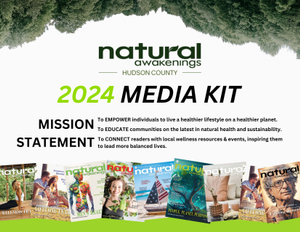Jeff Moyer on Farming for Human and Planetary Health
Mar 31, 2025 09:30AM ● By Sandra Yeyati
Image courtesy of RodaInstitute.org
Jeff Moyer is CEO of Rodale Institute, which champions regenerative organic agriculture through scientific research, farmer-support programs and consumer education. On Earth Day, he plans to retire after dedicating 47 years to the influential nonprofit. Moyer revolutionized organic agriculture when he developed and popularized the roller crimper, a device that simplifies no-till crop management and reduces or eliminates the need for herbicides to control weeds. Under his leadership and as a member of the Regenerative Organic Alliance, Rodale Institute helped develop a Regenerative Organic Certified standard that expands USDA Certified Organic requirements to include soil health, animal welfare and social fairness pillars.
Why is conventional agriculture problematic?
Because it boils down the measurement of farming success to one word: yield. By focusing just on yield and sacrificing long-term resource stability to get it, we’re chewing up topsoil at a national rate of five-and-a-half tons per acre of farmland per year for short-term economic benefit. You can only do that so long before you run out of topsoil. It doesn’t make sense long-term.
What farming practices does Rodale Institute promote?
We’re suggesting a different production model, based on science, that incorporates other metrics of success: soil health and long-term planetary and human health. As a side bar, let’s say you’re a smoker and you stop smoking—your lungs will regenerate. The same is true with soil. If we change production practices, the soil will regenerate.
Under our Regenerative Organic Certified standard, we want well-thought-out crop rotations to get more biodiversity into the system, cover crops and reduced tillage to get more earthworms, and a reintegration of livestock into farms. I’m not going to argue whether people should be eating animals, but if you are going to have animals in the system, they should be raised on farms with grass, not feed lots with grain.
Why is soil health such a priority?
Healthy soil is more biologically active and has a positive impact on climate because it doesn’t just sequester more carbon, it sequesters it at greater depths. We want carbon to last in the soil for a very long period of time. We don’t want it to be short-cycled in and out of the system, and we want to sequester it at greater depths where we can control it and maintain it for hundreds of years. Ideally, we’ll get it deeper and deeper in the soil over time.
Can regenerative organic agriculture affordably feed the world?
Affordability is a strange term. Can we produce all the food we need at a reasonable cost? Absolutely. The problem with the conventional model is that we don’t pay the true cost of food production at the point of purchase. As an example, when we have to dredge the Mississippi River because of all the soil that’s washing into it from agricultural lands, you don’t pay that bill at the supermarket or restaurant. You pay it as a hidden cost, buried in our tax structure.
In an organic system, you’re paying the true cost of the production of that food at the point of purchase, which makes more sense. And if you add the cost of human health—diabetes, heart disease—all the things that our current food production and food consumption model embodies, then the system we have now is outrageously expensive, and regenerative organic food is cheaper than conventional food.
Can regenerative organic agriculture produce the amount of food needed worldwide?
Yes. In most parts of the world, we use agricultural lands to produce all kinds of commodity products that aren’t food. Forty percent of the corn we produce in the U.S. goes to ethanol production and another 40 percent goes to livestock feed. The ink in your pen was made with soybean oil. If we decided to produce the most amount of food on an acre or hectare of land, we can produce way more food than we need.
What we’re saying is that conventional agriculture cannot feed the world long-term. In the short-term, we’re producing a lot of cheap food, but our current production model is doomed to failure over time because we’re going to run out of healthy soil to farm.
Are you hopeful about the future of agriculture?
Very hopeful. The USDA says that most organic farms are more profitable and expanding at a more rapid rate than their conventional counterparts, and that’s because we have a growing population of support in the marketplace. People are beginning to pay attention to how their food is produced, asking the right questions and recognizing that they have a vote with their food purchasing dollars. We’re seeing the concept of regenerative organic enter into the daily conversation, just like we did a few years ago with organic. People didn’t know what organic meant at first. Recent USDA statistics suggest that roughly 80 percent of the nation’s population has eaten something organic in the last 30 days, so people are seeking out organic, and we’re going to follow the same course with regenerative organic.
Sandra Yeyati is national editor of Natural Awakenings magazine.




